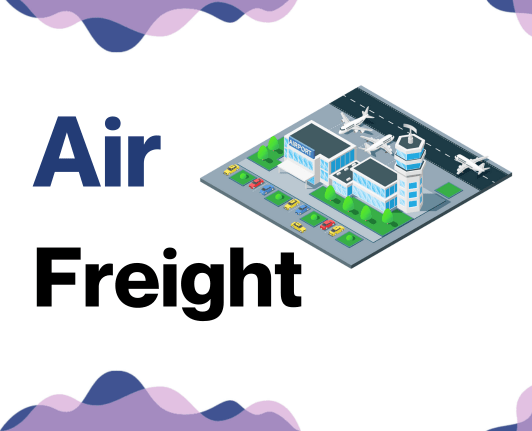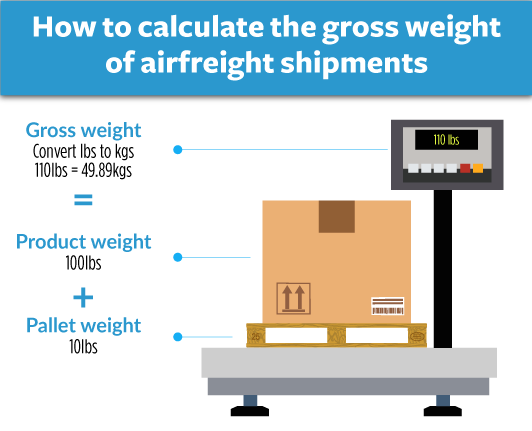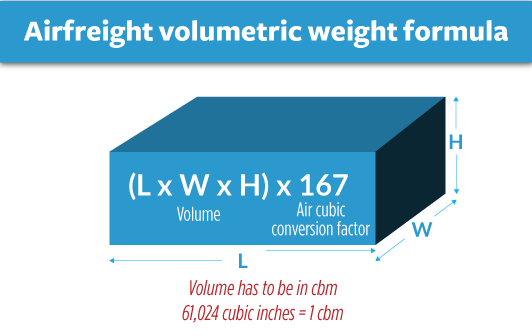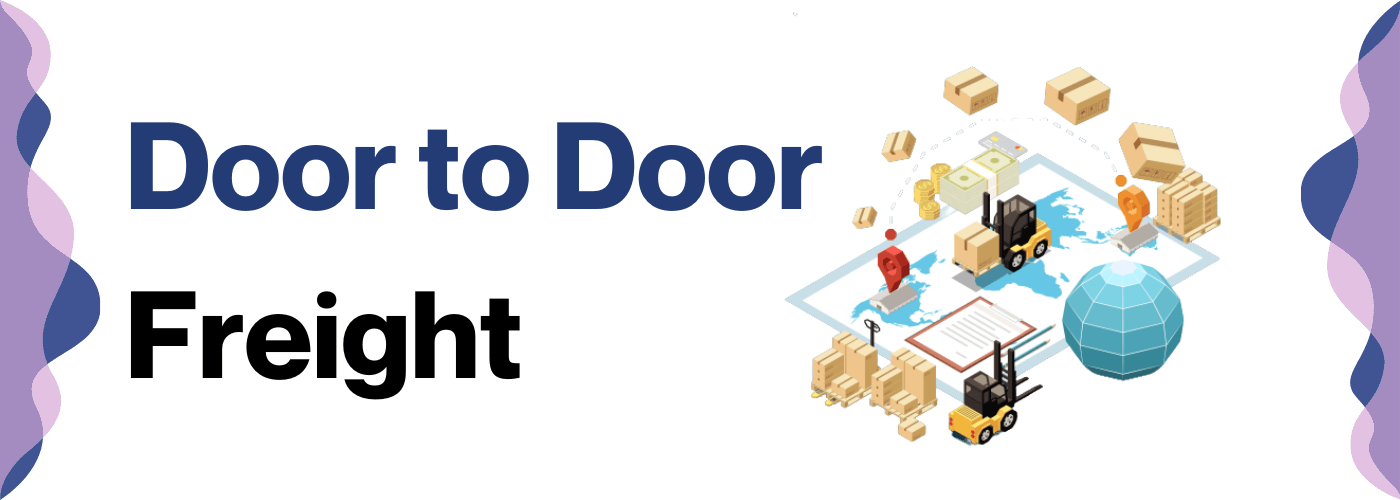Shipping from the UK to Saudi Arabia doesn't have to be as complicated as making tea for a Brit without milk! Trust us, we know some unique headaches come with figuring out transit rates, times, and puzzling customs regulations. This guide will provide you with an in-depth understanding of various freight transportation options like air, sea, road, and rail. It also elucidates the daunting process of customs clearance, along with an overview of duties and taxes. We'll also provide advice tailored specifically for businesses to ensure a smooth and efficient freight process. If the process still feels overwhelming, let DocShipper handle it for you! As an international freight forwarder, we deal with every step of the shipping process, transforming potential challenges into feasible success for your business.
Table of Contents
Which are the different modes of transportation between UK and Saudi Arabia?
Deciding on the smartest transportation method from UK to Saudi Arabia can feel like choosing the quickest route in a marathon. With thousands of miles and various countries in between, some paths are less appealing. Flying over topographies and geopolitics, air freight emerges as the swiftest option. But wait! For those checking their pocket watch and penny jar, slower yet cost-effective sea freight could be your golden ticket. Aim to match the method with your cargo's nature and your firm's unique requirements, just like fitting puzzle pieces together for one seamless shipping experience!
How can DocShipper help?
Looking to ship goods from the UK to Saudi Arabia? Trust DocShipper's expertise. We manage every detail, from transport arrangements to customs clearance. Our team ensures a smooth and efficient shipment process. Got queries? Reach out to our consultants for free. Click here for a free estimate in less than 24 hours.
DocShipper Tip: Ocean freight might be the best solution for you if:
- You're dealing with large quantities or oversized items. Sea freight offers a budget-friendly way to maximize space, a particularly useful option given the UK's extensive port network.
- Your shipment isn't on a tight schedule. Ocean transport typically takes longer than air or rail, but it offers reliability.
- Your supply chain involves key ports, allowing you to take advantage of a wide-reaching network of sea lanes.
Sea freight between UK and Saudi Arabia
Dive into the bustling trade scene between the UK and Saudi Arabia, where sea freight takes center stage. Imagine a convoluted network of cargos streaming through the ports of London, Southampton, or Felixstowe, crisscrossing oceans to connect to key Saudi hubs like Jeddah, Dammam, or Jubail. These are the veins of international commerce, pumping high-volume goods to drive trade between these nations. Despite the slow rhythm of sea freight, it's the cost-effective champion when shipping bulky loads.
Speaking of sea freight, it's no secret that it can feel like a complex jigsaw puzzle for many shippers and businesses. Questions loom large, such as: What are the common mistakes? How can I smooth out the wrinkles in the process? All those queries will be unraveled in this guide. Buckle up for a deep dive into best practices and specifications that can turn your shipping woes into a smooth sailing experience. Hold onto this guide, it's your compass in the vast sea of international shipping.
Main shipping ports in UK
Port of Felixstowe
Location and Volume: Located in Suffolk on the eastern coastline of the United Kingdom, this port is essential for its capabilities to handle mega ships, with a shipping volume of around 5 million TEU annually.
Key Trading Partners and Strategic Importance: The port serves as a primary connection to Asian markets as well as markets in Europe and the Americas. Its deep-water design accommodates the world's largest container ships, bolstering its strategic importance.
Context for Businesses: If you're looking to accommodate large-scale shipping requirements and connect with Asian, American, or European markets, the port of Felixstowe, given its size and infrastructure, may play an essential part in your logistics strategy.
Port of Southampton
Location and Volume: Situated on the south coast of England, the Port of Southampton is the United Kingdom's leading port for automotive trade and handles 2 million TEU each year.
Key Trading Partners and Strategic Importance: Asian markets, particularly China, are key trading partners due to the high volume of consumer goods imported. The port's role is further emphasized with its key position in the automotive industry's global supply chain.
Context for Businesses: If you're in the automotive industry or ship large volumes of consumer goods, the Port of Southampton's specialization in these areas could optimize your shipping processes.
Port of London
Location and Volume: Overlooking the River Thames, this port, serving as a robust link between London and sea routes worldwide, boasted a shipping volume of over 52 million tonnes per years.
Key Trading Partners and Strategic Importance: A versatile port, it handles various goods from containers and vehicles to construction materials, making it highly significant to numerous sectors.
Context for Businesses: For various sectors, particularly construction, urban freight, and retail, the Port of London's versatility and extensive global links can prove crucial for a diverse logistics strategy.
Port of Grimsby
Location and Volume: Found on the River Humber's south bank, the Port of Grimsby is UK's premier car-handling port with a yearly handling of over 500,000 vehicles.
Key Trading Partners and Strategic Importance: As a hub for car imports, key trading partners include major automotive economies such as Japan and Germany.
Context for Businesses: If you operate within the automotive sector seeking to import vehicles, the expertise and facilities of the Port of Grimsby can greatly augment your shipping effectiveness.
Port of Liverpool
Location and Volume: Situated on the west coast, this port is a vital gateway for transatlantic trade. It handles over 32,5 million tonnes of cargo per year.
Key Trading Partners and Strategic Importance: Its key trading partners span across Europe, the Americas, and parts of Asia. As the first port of call for north Atlantic trade routes, it carries strategic importance for transatlantic freight.
Context for Businesses: If you're looking to expand into transatlantic markets, the Port of Liverpool's strategic location and strong transatlantic links may benefit your business significantly.
Port of Belfast
Location and Volume: Located in Northern Ireland, this port is the principal gateway for Northern Ireland's imports and exports, handling 25 million tonnes of goods per year.
Key Trading Partners and Strategic Importance: The port mainly serves the UK and Ireland but also holds connections with Europe and North America.
Context for Businesses: For businesses focusing on Northern Ireland and seeking to expand in the UK, Ireland, and Europe, the Port of Belfast, with its prime location and broad links, can be a central part of a robust logistics strategy.
Main shipping ports in Saudi Arabia
King Abdulaziz Port
Location and Volume: Nestled in the Northern part of the Dammam city, King Abdulaziz Port is pivotal for the oil industry due to its proximity to the oil fields. It boasts a shipping volume of over 5 million TEU.
Key Trading Partners and Strategic Importance: Key role players include the U.S, China, India, and Singapore. Owing to its unparalleled infrastructure, it enjoys paramount strategic importance in servicing the oil industry.
Context for Businesses: If you operate in the oil sector and plan on capitalizing on Saudi Arabia's tremendous oil resource, King Abdulaziz Port is your gateway given its advanced oil terminals.
Jeddah Islamic Port
Location and Volume: Situated to the south of Jeddah city, Jeddah Islamic Port takes an instrumental role in servicing the Western Province, with a substantial shipping volume exceeding 5 million TEU.
Key Trading Partners and Strategic Importance: The port's foremost trading partners include China, India, the US, and the UAE. Notably known for having one of the largest container facilities in the kingdom, it is strategically positioned as a critical gateway for Saudi Arabia's import-export industry.
Context for Businesses: If you're focusing on expanding in the Western Saudi Arabian markets, the Jeddah Islamic Port's impressive container handling capability will be a massive advantage for your shipping plans.
Yanbu Commercial Port
Location and Volume: Located along the Red Sea coast in Yanbu city, Yanbu Commercial Port serves the Western part of Saudi Arabia and has a shipping volume of more than 800,000 TEU annually.
Key Trading Partners and Strategic Importance: Predominantly trading with Asian countries like China and India, it also holds significance due to its proximity to the Suez Canal and central Meditteranean countries.
Context for Businesses: If your business strategies require reaching out to markets close to the Suez Canal or the central Mediterranean countries, tapping into Yanub Commercial Port's exceptional location will serve as an optimal advantage.
King Fahd Industrial Port - Yanbu
Location and Volume: Sitting in Yanbu, King Fahd Industrial Port mainly caters to the industrial sector, with an impressive shipping volume of around 2 million TEU annually.
Key Trading Partners and Strategic Importance: Crucially trading with countries like China, Singapore, and India, it shines mainly serving the nationwide industrial sectors such as oil and petrochemicals.
Context for Businesses: If you run an industry-focused business and are keen on breaking into the Middle Eastern market, King Fahd Industrial Port - Yanbu, with its excellent industrial facilities, is the top choice.
Jubail Commercial Port
Location and Volume: Posed in the Eastern Province of Jubail, this port serves as an essential hub for the region, bearing a shipping volume of almost 850,000 TEU per year.
Key Trading Partners and Strategic Importance: Major trade ties include the U.S, India, and China. Given its location, it is strategically essential to the area's strong petrochemical industry.
Context for Businesses: For businesses in the Chemicals or Petrochemicals sectors, considering Jubail Commercial Port for your logistics can fortify your market reach, leveraging its superb location and handling capacity.
Ras Al-Khair Port
Location and Volume: Situated southeast of Jubail, Ras Al-Khair Port specializes in handling bulk goods, with a significant shipping volume of around 550,000 TEU per year.
Key Trading Partners and Strategic Importance: Primarily linked with Asian countries for trade, it is especially crucial due to its excellent bulk and general cargo handling capability.
Context for Businesses: If your shipping demands involve bulk commodities, Ras Al-Khair’s proficiency in handling such cargo types will augment your logistic strategy.
Should I choose FCL or LCL when shipping between UK and Saudi Arabia?
Choosing between full container load (FCL) and less than container load (LCL), or consolidation, is a critical logistical decision when shipping goods from the UK to Saudi Arabia. Your choice can substantially influence cost, delivery speed, and overall shipping success. This section unpacks the distinctions between the two sea freight options, illuminating how your decision can strategically align with your specific shipping objectives. Let's dive into the nitty-gritty and equip you with the knowledge needed to make an informed, profitable freight choice.
LCL: Less than Container Load
Definition: LCL (Less than Container Load) shipping is when your cargo is combined with others in a single container, leading to cost-efficient freight.
When to Use: This option becomes more advantageous when your cargo doesn't fill up at least half the space of a full container. For instance, if your shipment volume is less than 13/14/15 CBM, LCL is likely your best choice.
Example: Consider a supplier from Manchester wants to export tea to Riyadh, but only has 10 CBM worth of goods. Instead of paying for a half-empty container, they would consolidate their goods with other shipments in an LCL freight, reducing costs.
Cost Implications: LCL can significantly save on freight costs for smaller shipments. However, it's critical to remember that it might take a bit longer for your shipment to reach the destination due to the consolidation process. Understanding your shipment volume and scheduling needs can be instrumental in striking a balance between cost and time efficiency in LCL shipping.
FCL: Full Container Load
Definition: FCL or Full Container Load refers to an exclusive use of a 20'ft or 40'ft container for shipping goods from the UK to Saudi Arabia.
When to Use: FCL shipping is the go-to choice for businesses with cargo that exceeds 13/14/15 CBM. This is because it is economical for large volume shipments and promises safety as the container remains sealed from source to destination.
Example: For instance, if you're a car manufacturer shipping numerous vehicles and auto parts, getting an FCL shipping quote is advisable. The vehicles are packed into your FCL container at your UK factory and it isn't opened until it reaches its destination in Saudi Arabia.
Cost Implications: While the initial cost may be higher than LCL, FCL tends to be cheaper on a per unit basis. You're paying for the whole container regardless of whether it's full or not. Thus, the bigger your shipment, the bigger your savings. The certainty of a sealed container can also minimize potential business losses due to damages or theft, which accordingly, affects your company's bottom line.
Unlock hassle-free shipping
Whether you're considering consolidation or a full container, shipping between the UK and Saudi Arabia can be daunting. But not with DocShipper's support! Our ocean freight experts take the waves out of your shipping process, offering guidance on key factors like cost, volume, and timeline. Trust us to find your perfect cargo solution - after all, we're in the business of making shipping simple. Interested to discover the best option tailored to your specific shipping needs? Start now and get a free estimation from DocShipper!
How long does sea freight take between UK and Saudi Arabia?
Sea freight transportation between the UK and Saudi Arabia typically takes around 22-28 days. However, please bear in mind that such estimates are based on several variables, including the specific ports of loading and discharge, the weight and type of your commodities. For the most accurate and tailored advice on your shipping timetable, it's recommended to seek out a trustworthy freight forwarder, like DocShipper.
Below, you'll find a tentative chart showing average sea freight duration between four major ports in both countries. Specific times will vary:
| UK Ports | Saudi Arabia Ports | Estimated Transit Time (in days) |
| London Gateway | Jeddah | 22 |
| Felixstowe | King Abdullah | 26 |
| Southampton | Dammam | 28 |
| Liverpool | Yanbu | 24 |
*These are approximations and are subject to many variables. Again, to obtain the most precise estimates, consult with your preferred freight forwarding expert.
How much does it cost to ship a container between UK and Saudi Arabia?
Determining the precise cost of shipping a container between the UK and Saudi Arabia can be like piecing together a puzzle, with ocean freight rates fluctuating between wide ranges per CBM. This is due to several factors, including the Point of Loading and Destination, shipping carrier, nature of your goods, and inevitable market shifts each month. While an exact one-size-fits-all quote is an illusion, rest assured that our dedicated shipping specialists scrutinize every detail to give you the most cost-effective solutions. Remember, we quote each shipping project individually, tailor-making our responses to your unique scenario. So, no matter your cargo, expect our best foot forward for your shipping cost concerns.
Special transportation services
Out of Gauge (OOG) Container
Definition: An OOG container, or Out of Gauge container, is designed for cargo that doesn't fit within standard container dimensions due to height, length, or width.
Suitable for: OOG containers are best suited for loads with 'Out of Gauge Cargo' characteristics like oversized industrial machinery, large vehicles, and equipment.
Examples: Construction equipment such as cranes and excavators, large-scale generators, or wind turbine blades would be perfect candidates for OOG containers.
Why it might be the best choice for you: If your business involves transporting large or irregularly shaped goods from the UK to Saudi Arabia, the flexibility of OOG containers could be your solution.
Break Bulk
Definition: Break bulk refers to cargo that is loaded individually onto a vessel, rather than in containers.
Suitable for: This type of shipping is ideal for goods that can't be containerized due to size or form, and are better handled as individual units.
Examples: Large machinery, construction materials, or even smaller break bulk such as bagged or bundled items like cement or steel rods.
Why it might be the best choice for you: Opt for break bulk shipping if your goods are too big or awkwardly shaped for standard container shipping, yet can be handled individually.
Dry Bulk
Definition: Dry bulk shipping involves the transport of homogeneous, loose cargo loads that are loaded and discharged with a shovel, bucket, or scoop.
Suitable for: This shipping method is particularly suitable for large quantities of unpackaged goods like coal, grain, or minerals.
Examples: Businesses shipping large volumes of sand for the construction industry, or grain for the food sector, commonly use this method.
Why it might be the best choice for you: If your shipments fall into the category of unpackaged loose cargo in vast quantities, dry bulk shipping could be the efficient choice.
Roll-on/Roll-off (Ro-Ro)
Definition: A Ro-Ro vessel is designed to carry wheeled cargo that's driven on and off the ship on their wheels or using a platform vehicle.
Suitable for: Vehicles, trailers, and machinery that are on wheels and can be driven or towed onto the ro-ro vessel.
Examples: Cars, trucks, buses, trailers, and even heavy machinery like tractors are best suited for Ro-Ro shipping.
Why it might be the best choice for you: If your cargo includes wheeled or tracked vehicles that can be driven onto the ship, then the Roll-on/Roll-off method is your go-to option.
Reefer Containers
Definition: Reefer containers, or refrigerated containers, are designed to maintain a stable temperature to ensure the safe transportation of perishable goods.
Suitable for: Mostly used for foods, pharmaceuticals, and other cargo that needs to be kept at specified temperatures.
Examples: Meat, dairy products, fruits, vegetables, and medicines are perfect examples of goods typically shipped in reefer containers.
Why it might be the best choice for you: If temperature control is crucial for your goods, utilizing a reefer container will ensure your items remain fresh during transportation from the UK to Saudi Arabia.
Navigating through sea freight shipping options can be complex. Let DocShipper simplify it. Contact us for a free shipping quote. Our team of experts can provide a tailored solution within 24 hours.
DocShipper Tip: Air freight might be the best solution for you if:
- You're facing tight deadlines or need rapid delivery. Air freight is your quickest option, which aligns well with the fast-paced business environment.
- Your shipment is relatively small, under 2 CBM. Air freight is ideal for these more compact loads.
- Your cargo's destination isn't easily reached via sea or rail. This makes air freight a viable option, especially given the extensive network of airports available.
Air freight between UK and Saudi Arabia
When shipping goods from the UK to Saudi Arabia, air freight comes out on top, and for good reason. Imagine the speed of sending a tweet – that's how swift air freight can be. Not only does it provide quick and reliable delivery, but it's also a smart move for small, high-value goods, akin to sending your diamond ring via courier rather than a pigeon carrier.
However, many businesses falter in this game of chess, trapped by costly missteps. For instance, miscalculating the weight of goods can inflate costs, like mistaking an elephant for a mouse. Know the tricks of the trade to avoid unnecessary expenses – it's a world we'll uncover as we navigate this guide.
Air Cargo vs Express Air Freight: How should I ship?
Deciding how to ship your goods from the UK to Saudi Arabia? Whether you're considering air cargo, where your goods hitch a ride with an airline, or express air freight, shipping with style on a dedicated plane, it can be a puzzle. Thread through practical insights on these two different forms of aerial transport, and select what's best for your unique shipping needs. Let's unravel the mystery in a clear, straightforward manner so that you can make the smartest choice.
Should I choose Air Cargo between UK and Saudi Arabia?
Taking a closer look at Air Cargo for your UK to Saudi Arabia shipments, companies like British Airways and Saudi Airlines Cargo are key players offering efficient, although lengthier, transit times due to fixed schedules. Air cargo becomes an increasingly attractive option for loads exceeding 100/150kg (220/330 lbs), striking a balance between cost-effectiveness and reliability. Remember, the choice of shipping mode not only reflects the capacity of your cargo, but also aligns with your budgetary concerns and timing necessities.
Should I choose Express Air Freight between UK and Saudi Arabia?
When considering shipments under 1 CBM or 100/150 kg (220/330 lbs), you might find great value in choosing Express Air Freight. This specialized service employs dedicated cargo planes without passengers, offering speed and security for your cargo. Notable courier firms delivering this service include FedEx, UPS, and DHL, each providing reliable express deliveries from the UK to Saudi Arabia. Should your needs align with quick turnaround times and the size and weight restrictions aren't an issue, then express air freight is a strong contender for your shipping considerations.
Main international airports in UK
Heathrow Airport
Cargo Volume: Heathrow handles around 2 million metric tons of cargo annually, making it the busiest cargo airport in the UK.
Key Trading Partners: Major trading partners include the United States, Europe (Germany, Italy), and Asia (China, Japan, Hong Kong).
Strategic Importance: Located in London, Heathrow plays a crucial role in serving a major economic hub and connecting the UK to over 200 global destinations.
Notable Features: Heathrow offers efficient cargo handling facilities and a variety of on-airport freight forwarding facilities.
For Your Business: Heathrow's extensive connection network and robust cargo handling capabilities may enhance your shipping strategy, particularly if your business deals with high-value goods or time-sensitive shipments.
East Midlands Airport
Cargo Volume: The Airport handles around 400,000 metric tons of cargo every year.
Key Trading Partners: Major trading partners include Europe (Germany, Spain, France), Africa, and Asia (China).
Strategic Importance: East Midlands is a key hub for e-commerce due to its position in the middle of the UK, offering easy reach to a large customer base.
Notable Features: It operates 24 hours and is the UK's main air hub for Royal Mail.
For Your Business: If your operation involves domestic trading or e-commerce business, this strategically located airport might significantly expedite your logistics process.
Manchester Airport
Cargo Volume: On an annual basis, Manchester Airport handles about 150,000 metric tons of cargo per year.
Key Trading Partners: Vital trading partners are Europe (Netherlands, Belgium, France), the United States, and Asia (China, Singapore).
Strategic Importance: Sitting in the heart of one of the largest cities in the UK, Manchester Airport is a vital gateway to northern England.
Notable Features: The airport supports a comprehensive logistics infrastructure.
For Your Business: This airport could be integral to your shipping strategy if you're looking to reach customers in Northern England quickly and effectively.
Stansted Airport
Cargo Volume: On average, Stansted Airport oversees around 250,000 metric tons of cargo annually.
Key Trading Partners: Main trading partners include Europe (Germany, France), the Middle East, and Asia (China, Hong Kong).
Strategic Importance: Given its location just outside of London, it serves as a significant link between the UK capital and the rest of the world.
Notable Features: Stansted is a leading hub for express freight operators.
For Your Business: If your enterprise requires rapid cargo turnaround times, Stansted could be an excellent choice, thanks to it being a significant hub for express freight.
Gatwick Airport
Cargo Volume: Gatwick handles around 100,000 metric tons of cargo annually.
Key Trading Partners: Key partners include the United States, Europe (Spain, Greece), and the Middle East (UAE).
Strategic Importance: Gatwick Airport, second largest in the UK, caters to the London market and southern England.
Notable Features: It hosts several world-class cargo airlines and offers state-of-the-art cargo handling facilities.
For Your Business: Gatwick is an ideal choice if you're looking for efficient cargo handling and diverse airline options for your international shipping requirements.
Main international airports in Saudi Arabia
King Khaled International Airport
Cargo Volume: King Khaled airport is one of the busiest airports in the Middle East region and saw a cargo volume of approximately 800,000 tonnes in 2023.
Key Trading Partners: Key trading partners include the China, US, India and UAE.
Strategic Importance: Located in the capital city Riyadh, it is the central hub for incoming and outgoing freight, particularly servicing industries such as oil, machinery, and construction.
Notable Features: The Airport has modern cargo facilities, accommodating a variety of cargo types, consisting of perishable items, dangerous goods, and general cargo.
For Your Business: If you're shipping substantial quantity or heavyweight goods, King Khaled International Airport may be a prime choice due to its high handling capacity and strategic location.
Jeddah King Abdulaziz International Airport
Cargo Volume: This airport processed close to 500,000 tonnes of cargo in 2023.
Key Trading Partners: The key trading partners include China, UAE, India, and Germany.
Strategic Importance: Economic importance being close to the major commercial seaport, enhances the feasibility of multimodal international freight transport.
Notable Features: Home to one of the largest air cargo centers in the Saudi Arabia, this airport is capable of handling 2 million tonnes of cargo annually.
For Your Business: If you have perishable goods for export, Jeddah Airport might prove valuable as it contains a specially designated perishable cargo center.
Dammam King Fahd International Airport
Cargo Volume: The Dammam Airport handles about 400,000 tonnes of cargo each year.
Key Trading Partners: Important trading partners involve China, US, South Korea, and India.
Strategic Importance: Its own Customs Center conveniently expedites clearance process. The airport's strategic location close to oil rich Eastern Province makes it an important entry point.
Notable Features: One of the largest airports in the world by area with advanced cargo facilities that can handle all types of freight, including live animals.
For Your Business: The in-house Customs Center might significantly reduce your cargo's clearance time, enabling for quicker transit times.
*By understanding the capacities and strategic advantages of Saudi Arabia’s cargo airports, you can make informed decisions about how best to organize your shipping logistics. Remember, choosing the right airport can potentially save your business money and time while ensuring your products reach their destination swiftly and securely.
How long does air freight take between UK and Saudi Arabia?
Shipping goods between the UK and Saudi Arabia by air freight typically takes between 3-5 days. However, it's worthwhile noting that the overall transit time can vary greatly depending on the specific airports involved, the weight of the shipment, as well as the nature of the goods themselves. For a more detailed and accurate timeline tailored to your unique shipping needs, don't hesitate to consult a freight forwarder like DocShipper.
How much does it cost to ship a parcel between UK and Saudi Arabia with air freight?
Air freight costs between the UK and Saudi Arabia can widely range from £5 to £15 per kg. However, an accurate quote depends on various factors such as distance from airport departure and arrival, parcel dimensions, weight, and nature of goods. At our firm, we understand that every shipment is unique and deserves specialized attention. That's why we provide custom quotes to ensure you're getting the best rates for your specific needs. Rest assured, our dedicated team is ready to work closely with you for efficient and economical freight solutions. Contact us today and receive a free quote within 24 hours.
What is the difference between volumetric and gross weight?
Gross weight refers to the actual weight of your shipment, including its packaging. On the other hand, volumetric weight considers size as well as weight, taking into account the space your shipment takes up in the aircraft.
To calculate gross weight in air cargo, simply use a calibrated scale to weigh your shipment, packaging included. For example, your entire shipment, including its packaging, might weigh 100 kg, which is approximately 220 lbs.
Volumetric weight calculation is a bit different. It’s formula goes as follows for Air Cargo: (Length x Width x Height in cm) / 6000. In Express Air Freight, the denominator is 5000. For instance, if a package is 40cm long, 30cm wide, and 20cm high, the volumetric weight in Air cargo would be (40x30x20) / 6000 = 4 kg (about 9 lbs) and in Express Air Freight (40x30x20) / 5000 = 4.8 kg (about 11 lbs).
So, why is all this important? Freight charges are determined based on whether the gross or volumetric weight is higher. If your package is light but takes up a lot of space, you may be charged based on its volumetric weight. Understanding these concepts helps you plan your shipping costs more efficiently.
DocShipper tip: Door to Door might be the best solution for you if:
- You prioritize ease and a hassle-free shipping experience. Door-to-door services manage the entire process, from collection to final delivery.
- You appreciate the efficiency of having one dedicated contact. With door-to-door, a single agent is responsible for overseeing all elements of your shipment.
- You want to limit the number of times your cargo is transferred. Door-to-door services minimize the switches between various transport methods, lowering the chances of damage or loss.
Door to door between UK and Saudi Arabia
Navigating intercontinental routes yourself is a thing of the past; welcome to Door to Door shipping, your seamless conduit between the UK and Saudi Arabia. This service eliminates the fuss of dealing with multiple logistics providers, offering peace-of-mind and efficiency. It's your one-way ticket to expedited customs clearances and accelerated shipment times. A godsend for businesses, frankly. So, strap in, let's dive into the world of door to door shipping!
Overview – Door to Door
Shipping between the UK and Saudi Arabia can be complex, but door-to-door service simplifies the process. It's a stress-free solution with advantages like complete oversight of your cargo, fewer customs headaches, and seamless coordination. However, it might cost slightly more. For many of DocShipper's clients, the benefits outweigh the expenses. From transport organisation, regulatory approvals to final delivery, it's all covered. Door-to-door shipping isn't just convenient, it negates the need to navigate international trade alone. While it streamlines business logistics, carefully weighing its advantages and potential costs upfront is key. Choose peace of mind, choose door-to-door.
Why should I use a Door to Door service between UK and Saudi Arabia?
Ever tried juggling flaming torches while riding a unicycle? Unless you're a circus pro, organizing international shipping could feel a bit like that! Let's see why door-to-door shipping from the UK to Saudi Arabia might just save your sanity (and your unicycle):
1. Stress-Free Logistics: Forget the hassle of coordinating multiple parties for moving your goods. With door-to-door services, your freight forwarder handles the entire process - a seamless, hands-off experience.
2. Timely Deliveries: Urgent shipments? Tight deadlines? Door-to-door services prioritize punctuality. Your goods are picked up and delivered directly, making the journey swift with no unexpected layovers.
3. Specialized Care for Complex Cargo: Fragile, dangerous, or just plain odd-sized cargo? Don't sweat it! Door-to-door services mean your goods get the special attention they need throughout their journey, lowering the risk of damage or mishandling.
4. End-to-End Tracking: No more nail-biting, in-the-dark moments. Door-to-door services offer real-time updates on your shipment's status, providing peace of mind and easier planning on your end.
5. Ultimate Convenience: Door-to-door isn't just a smart logistic choice; it's a lifestyle upgrade. It takes the heavy lifting (literally) off your shoulders as they handle all the trucking right up to the final drop-off point.
In a nutshell, door-to-door shipping turns a flaming-torch juggling act into a walk in the park. Enjoy the convenience; let your international freight forwarder do the heavy lifting.
DocShipper – Door to Door specialist between UK and Saudi Arabia
Experience stress-free shipping from the UK to Saudi Arabia with DocShipper! Our expertise in global logistics ensures your freight's smooth journey, no matter the shipping method. We deliver end-to-end service, managing everything from packing to customs clearance. With a personal Account Executive guiding you at every step, you can relax, knowing your shipment is in good hands. Reach out to us for a free, no-obligation quote within 24 hours or chat with our logistics consultants at your convenience.
Customs clearance in Saudi Arabia for goods imported from UK
Navigating through the labyrinth of customs clearance in Saudi Arabia when importing from the UK can be a tricky business. This process, central to the import/export world, involves submitting the correct documents to ensure your cargo can enter or leave a country. It's not unheard of to encounter unexpected fees and charges or face the nightmare of goods stuck in customs due to overlooked duties, taxes, quotas, or licenses. Detailed knowledge in these areas is essential and we'll dive deeper into them later in this guide. Remember, you're not alone in this. DocShipper is here to handle the whole process. We can help transport any goods anywhere in the world. Just give us the original location, goods value, and HS Code of your consignment, and we'll provide a detailed estimate for your project. Keep reading to get armed with vital customs clearance information.
How to calculate duties & taxes when importing from UK to Saudi Arabia?
Estimating duties and taxes when importing goods from the UK to Saudi Arabia is no easy task, but with the right understanding of basic factors, you can navigate through it smoothly. The cornerstone of any customs duty calculation is determined by the country of origin - in essence, where your goods were manufactured or produced. This is crucial not only for assessing the duty rate, but also for compliance with varying international trade agreements.
To identify the final tally on your customs clearance invoice, you would need to peel back the layers of the total value your shipment carry. This includes understanding the Harmonized System (HS) code, which is an internationally standardized system of names and numbers to classify traded products, and your goods' customs value. Additionally, knowing the applicable tariff rate is key to estimating your overall cost. Lastly, don’t forget to account for any potential extra fees or taxes your products may attract due to local regulations or requirements, these can frequently catch importers by surprise.
Remember, the first significant step in this journey is identifying the country where your goods were originally manufactured or produced - a task easier said than done, but crucially important nonetheless. With that piece of the puzzle in place, the rest of your duties and taxes calculation chore will begin to fall into line.
Step 1 - Identify the Country of Origin
Understanding your product's country of origin is the first rung on the ladder that leads to accurate duty and tax estimation. Here are five reasons why:
1. It pinpoints your goods in the global market. Today, most items are 'international' with parts from various countries. The nation contributing the highest value decides the country of origin.
2. This information dictates how duties apply based on trade agreements. For UK-Saudi Arabia trade, for example, certain UK goods receive preferential treatments under specific arrangements.
3. Import restrictions can change based on origin. Saudi Arabia has limitations on select items from certain countries.
4. The country of origin shields you from unexpected duty charges - a small detail that can significantly sway your total costs.
5. Lastly, it aids in customs compliance. Incorrect information can lead to delays or penalties.
Between UK and Saudi Arabia, numerous trade agreements impact custom duties. Research them assiduously to avoid unpleasant surprises at customs - like the Generalized System of Preferences that reduces duty on specific goods. Always cross-check your product with Saudi-specific import restrictions too. Remember, smart shipping starts with getting the basics right.
Step 2 - Find the HS Code of your product
The Harmonized System Code, often abbreviated as HS Code, is a universally recognized system of names and numbers that classifies traded products. Its purpose is to create a standardized system that customs officers worldwide can use to understand the exact nature of goods crossing borders, and hence, assess duties and taxes accordingly.
Your HS Code is particularly important because it has a direct impact on how much you'll pay in duties and logistics costs. Usually, your supplier should be able to provide you with the correct HS Code, as they are quite familiar with the product they’re importing and the corresponding regulations.
However, if obtaining the HS Code from your supplier isn't possible, not to worry, because finding it on your own can be straightforward. An easy starting step is to use an HS lookup tool like the Harmonized Tariff Schedule.
In this tool, you simply input the name of the product you're shipping into the search bar. Following this, you review the results under the Heading/Subheading column - that's where your HS Code will be listed.
A word of caution: Accuracy is crucial when determining your HS Code. Mistakes can lead to shipment delays, and even worse, hefty fines. So, double-check every step and leave no room for ambiguity or error.
Here's an infographic showing you how to read an HS Code.
Step 3 - Calculate the Customs Value
You might be asking, what exactly is 'customs value'? Well, it's different from the simple price tag of your goods. The customs value, calculated in USD, will help determine the duties owed and it's based on the CIF value. CIF, standing for Cost, Insurance, and Freight, is the sum of the cost of your goods, the cost of international shipping, and the insurance charges associated.
For instance, let's say your products are valued at $1000, freight costs are $200, and insurance is another $50. Your total CIF or Customs value then would be $1250. This CIF value plays a key role in how much you pay for customs, making it imperative to calculate it accurately. Understandably, it might seem a tad complex, but it's this detail-oriented process that ensures your shipment from the UK to Saudi Arabia goes smoothly.
Step 4 - Figure out the applicable Import Tariff
An import tariff is essentially a tax charged on goods shipped internationally, affecting the cost of importing commodities into a country. In Saudi Arabia, the Harmonized System (HS) is employed to categorize imports, and this forms the basis of their tariff structure.
To identify the import tariff for your goods shipped from the UK to Saudi Arabia, follow these steps:
1. Visit the UK's own Trade Tariff: look up commodity codes, duty and VAT rates tool.
2. Input the HS code you identified earlier, along with the country of destination (Saudi Arabia).
Let's illustrate this with an example; assume you're importing rubber boots (HS code 6401.10) from the UK. Let's also postulate your insurance and freight (CIF) cost as $1000.
Upon entering these credentials, you might discover a 5% tariff rate. Therefore, your import duties would be 5% of $1000, which is $50.
Understanding tariffs can assist you in accurately calculating your overall shipping costs, ensuring smooth international transactions.
Step 5 - Consider other Import Duties and Taxes
Heading over to Saudi Arabia from the UK with your goods? It's critical to understand that besides the standard tariff rates, there might be additional duties to tackle, depending on the product's nature and origin country. They can include excise duty, anti-dumping taxes, and chiefly, the VAT rate.
Take for instance your manufactured electronic goods. While the standard tariff might be around $100 per unit (as an example), if there's an excise duty of 10%, you'll need to fork out an extra $10. Remember, these can vary vastly.
But it's not over yet. If your goods are potentially under anti-dumping policies, there might be more fees levied to protect local industries. Like a 5% tax might add another $5 to your bill.
And don't forget the biggie: VAT. Saudi Arabia levies a 15% VAT, which will apply to the entire value of your goods plus all duties. So, if your goods plus duties total $3000, you could be seeing a $450 VAT bill. Do note, these numbers are illustrative and actual costs may vary.
Stay clued up on these to avoid unexpected import bills from eating into your profits. Knowledge is power, and in this case, it’s also profit!
Step 6 - Calculate the Customs Duties
Step 6 will guide you through computing customs duties in Saudi Arabia for your UK-imported goods. The formula to calculate this is straightforward: Customs Value x Customs Duty Rate.
Firstly, let's consider an instance where you are importing goods with a customs value of $10,000 and the customs duty rate is 5%. In this case, your customs duty would be $500 - simple, isn't it?
Now, when VAT is in the picture, it's slightly different. Suppose your goods still have a customs value of $10,000, the customs duty is 5%, and Saudi VAT is 15%. Your customs duties would still be $500, but you would also need to pay VAT which would be $1,575 ((Customs Value + Customs Duty) x VAT Rate).
Finally, if anti-dumping taxes and the Excise Duty are applicable, it's rather more complex. Let's assume you have anti-dumping of 5% and Excise Duty of 20% on goods valued at $10,000. Then, your customs duty, VAT, anti-dumping taxes, and excise duty will all add up to $4,075!
Comprehending these calculations can seem overwhelming. But don't worry, DocShipper is here to support you. We handle every step of the customs clearance process globally, ensuring you aren't paying more than you should. Contact us for a no-obligation quote within 24 hours. Navigate your shipping confidently with DocShipper.
Does DocShipper charge customs fees?
Understanding customs fees can feel complex. As a custom broker in the UK and Saudi Arabia, here's the scoop on the fees we charge at DocShipper: customs clearance fees. This isn't to be confused with customs duties and taxes, which go directly to the government and aren't part of our charges. To show transparency, we give you the official documents from customs, so you can see exactly what you paid. It's like when you buy electronic appliances; you pay the retailer, but VAT? That's between you and the government. We keep it clear and straightforward – just the way it should be.
Contact Details for Customs Authorities
UK Customs
Official name: Her Majesty's Revenue and Customs (HMRC)
Official website: https://www.gov.uk/
Required documents for customs clearance
Untangling the web of customs paperwork can seem daunting. We'll simplify it here, exploring the critical documents - Bill of Lading, Packing List, Certificate of Origin, and Documents of conformity (CE standard). It's time to conquer the paperwork mountain with confidence, ensuring your goods clear customs seamlessly!
Bill of Lading
Mastering the Bill of Lading is key when shipping from the UK to Saudi Arabia. It proves you've handed the goods over to the shipping line and ownership has officially transferred. Have it with you at every step! Think of it as your cargo's ID, but on a more sophisticated level. Some opt for an electronic, or telex release; a savvy choice providing speedy, paperless transactions and eliminating the risk of losing original documents. It's the future of freight – fast, efficient, and eco-friendly! And if you're air freighting, that's where the Air Waybill (AWB) comes in - similar roles, different transport. Remember, smooth shipping relies on seamless documentation. Keep them safe, keep them close!
Packing List
When shipping from the UK to Saudi Arabia, compiling an accurate Packing List is your passport to an effortless customs clearance process. This essential document offers customs a detailed breakdown of the goods you're transporting - whether by sea or air. Think of it as an inventory, listing product details like quantity, description, and weight. For example, suppose you're sending out a consignment of printed books. Your packing list must specify the number of boxes, weight of a single box, and the total weight. Missteps or ill-prepared Packing Lists are a major holdback for shipments, holding up your goods at Saudi customs. It's therefore pivotal that shippers approach this task with the accuracy it deserves to ensure smooth sailing.
Commercial Invoice
Shipping goods from the UK to Saudi Arabia? You're going to need a Commercial Invoice. Let's delve into what this means for you. The Commercial Invoice lists, in detail, the product, quantity, value, and buyer and seller details. It's kingpin in customs clearance. But, don't forget to align this information with your Bill of Lading and Packing List to avoid hold-ups! Ensure your product descriptions are precise and in compliance with Saudi customs regulations. For instance, if you're shipping electronics, specify the type and model number instead of just stating 'electronics'. Remember, accuracy in your Commercial Invoice isn't just paperwork; it could be a deal-breaker between a smooth shipment or a pile of unnecessary delays and duties.
Certificate of Origin
Navigating the shipment journey from the UK to Saudi Arabia? The Certificate of Origin (CoO) will be your best friend. This document is the formal declaration of where your goods are manufactured, and trust us, Saudi Arabian customs officials pay close attention to it. Why? Because it can snag you preferential customs duty rates. Imagine the CoO as a golden ticket, reducing your shipping costs by proving your goods were made in a country - say, the UK - that shares a special trade agreement with Saudi Arabia. By meticulously stating the country of origin and ensuring the document is correctly formatted and notarized, this seemingly simple piece of paper becomes a powerful tool in your freight forwarding toolkit. Think of it as the key to unlocking smoother, more cost-effective shipments. Now who doesn't want that?
Get Started with DocShipper
Experiencing turbulence with customs clearance between the UK and Saudi Arabia? Say farewell to the complexities! DocShipper can efficiently handle every step of the process. Let us sort through the labyrinth of documents and procedures for you. Long waits are a thing of the past–contact us now to receive your free, no-obligation quote in less than 24 hours!
Prohibited and Restricted items when importing into Saudi Arabia
Understanding Saudi Arabia's import norms can be pretty daunting. Let's simplify things for you. Be aware of certain items tagged 'prohibited' or 'restricted' - it can be a complex process, full of potential snags that could disrupt your shipment. Stick around as we demystify the import regulations for you, helping keep your shipping on track.
Restricted Products
- Pharmaceuticals: For importing pharmaceuticals, you'll need to get approval from the Saudi Food and Drug Authority (SFDA). For regulations and an application form, check out their official website here.
- Chemicals: If you're thinking about shipping chemicals, Saudi Arabia's National Authority for Chemicals (NAC) is in charge. Make sure to get a permit from them. To learn about the detailed regulations, visit their website.
- Food Products: To import food products into Saudi Arabia, you should apply for an import permit from the Saudi Food and Drug Authority (SFDA).
- Live Animals and Plants: For live animals and plants, pay a visit to the Ministry of Environment, Water and Agriculture website for required licenses.
- Wireless Equipment: When you want to bring in wireless communication equipment, you have to apply for a permit from the Communications and Information Technology Commission (CITC). Here's where you can get that done: CITC Website.
- Cosmetic Products: For business involving cosmetics, Saudi Arabia has specific regulations managed by the Saudi Food and Drug Authority (SFDA).
- Arms and Ammunition: If your shipment includes arms and ammunition, you'll have to look for approval from the Ministry of Interior. The ministry's website can be a good starting point.
*Remember, every category mentioned requires specific paperwork and compliance to certain standards. It's important to visit the respective governmental websites to gather detailed information before initiating the shipping process.
Prohibited products
- Alcohol and alcoholic beverages
- Narcotic drugs and psychotropic substances
- Pork and pork products
- Non-Islamic religious materials
- Pornographic materials
- Counterfeit and pirated goods or materials
- Certain endangered species of plants and animals, whether dead or alive, including their parts and products
- Substances used in black magic, witchcraft or sorcery
- Publications, illustrations, and other media that contravene or denigrate Islam and the royalty
- Weapons, ammunitions, and explosives without a permit
- Radioactive materials without proper clearances
- Products or items that are named, designed or labeled with phrases or images related to gambling
- Any product containing any derivation of the hemp plant including marijuana, CBD (Cannabidiol) or any other cannabinoids.
Are there any trade agreements between UK and Saudi Arabia
Yes, UK and Saudi Arabia share a robust trade partnership without formal FTAs. Post-Brexit, the UK has been exploring potential trade negotiations with the Gulf Cooperation Council, which includes Saudi Arabia. However, there isn't a finalized trade agreement for now. Transport infrastructure, such as the land bridge railway project in Saudi Arabia, could greatly benefit future trade dynamics. For now, standard import/export rules apply, but observing these discussions closely can help get ahead in planning your shipping strategies.
UK - Saudi Arabia trade and economic relationship
The economic bond between the UK and Saudi Arabia is rich and long-standing, tracing back to the 1930s. It's marked by pivotal events like the establishment of Saudi oil industry with UK partnership, setting the foundation for mutual trade and investment. Today, this relationship is diverse, spanning key sectors such as petrochemicals, defence, healthcare, and education.
With a total trade value exceeding £9 billion annually, Saudi Arabia remains the UK's largest Middle Eastern trading partner. UK investments into Saudi Arabia touch £6.3 billion, while Saudi investments in the UK are over £62.5 billion. These robust figures reflect the strategic significance of goods traded, including mineral fuels, electrical machinery, and medical instruments. Over the years, both nations have been committed to enriching this economic alliance, providing vast opportunities for businesses to successfully navigate their trade journey between the two countries.
Your Next Step with DocShipper
Don't let shipping stress overshadow your UK-Saudi Arabia trade ambitions. Expertise matters in the complex world of international logistics, and that's what DocShipper brings to the table. Let us handle the intricate customs, paperwork, and transport coordination, so you can focus on growing your business. Ready to simplify your shipping process? Reach out now!
Additional logistics services
Explore more than shipping and customs with DocShipper! Dive into additional services that streamline your supply chain process, simplifying every step from start to finish. It's logistics made easy.
Warehousing and storage
Struggling to find reliable warehousing in the UK or Saudi Arabia? The right conditions, especially temperature control, can make or break perishable goods. But don't sweat it! Our bespoke warehousing solutions cater to variable product needs, ensuring your goods are stored with utmost care. More info on our dedicated page: Warehousing.
Packaging and repackaging
Shipping from the UK to Saudi Arabia? Then, packaging is paramount! Having a reliable agent means your goods are protected, no matter if it's electronics or art. They'll master the art of fitting each item in an optimal, safe way. Imagine your fragile porcelain arriving intact, undeterred by the long journey. Secure packaging, less worry, more peace of mind. Discover more about the benefits on our dedicated page: Freight packaging.
Cargo insurance
Shipping without cover? Think again! Unlike standard fire insurance, Cargo Insurance is a safeguard for your goods during transit. Imagine a storm at sea damaging your container. Worrisome, yes? But with our insurance, it's a worry off your plate. Prepare for the unexpected, mitigate risks and keep your business afloat. Dive into details at our dedicated page: Cargo Insurance.
Supplier Management (Sourcing)
Tackling procurement overseas can be daunting. DocShipper can demystify this process by finding your UK business the best suppliers in Asia, East Europe, and beyond. Forget language barriers too; we'll guide you through the entire procurement process. Think of us as your savvy bilingual business partner making overseas sourcing a breeze. More info on our dedicated page: Sourcing services.
Personal effects shipping
Relocating from the UK to Saudi Arabia? Trust us to care for your precious, bulky belongings as if they were our own. Our expert team ensures their safe journey, be it Grandma's old piano or that beloved sculpture. Worried about space? Our flexible options have got you covered. More info on our dedicated page: Shipping Personal Belongings.
Quality Control
The process of shipping between the UK and Saudi Arabia calls for meticulous quality control to avoid hurdles. Let's say you're shipping furniture - one faulty chair and the whole consignment could potentially be delayed. By employing our quality inspection services, you ensure that your goods pass Saudi's strict controls, saving time and money. More info on our dedicated page: Quality Inspection
Product compliance services
When you're sending goods globally, making sure your product meets destination regulations is critical. With our Product Compliance Services, we do the heavy lifting: testing in labs, obtaining necessary certifications, ensuring regulation compliance. Real-world scenarios? Consider a toy manufacturer meeting stringent safety standards. We guide you through these often complex processes. Detailed insights here: Product compliance services
FAQ | For 1st-time importers between UK and Saudi Arabia
What is the necessary paperwork during shipping between UK and Saudi Arabia?
When shipping from the UK to Saudi Arabia, several different pieces of paperwork are essential. We, DocShipper, manage your Bill of Lading for sea freight or Air Way Bill for air freight. You, as the shipper, need to furnish a packing list and commercial invoice. Depending on the nature of the goods being shipped, additional documents are sometimes necessary. For example, a Material Safety Data Sheet (MSDS) or certifications might be required. Remember, the exact paperwork needed can vary based on what you're shipping. Our team is always available to guide you through this process to ensure a smooth transit for your goods.
Do I need a customs broker while importing in Saudi Arabia?
In Saudi Arabia, navigating through customs can be a complex process, with a range of mandatory details and documents to handle. It's advisable to employ the services of a customs broker to interact with the customs authority efficiently. Being your representative for most shipments, we at DocShipper alleviate this burden by managing your cargo's clearance process and tackling any arising customs challenges. Through this, we handle the intricate details, freeing you to focus on your core business operations. Also, it heightens compliance, reducing potential delays or fines due to inaccurate or missing information.
Can air freight be cheaper than sea freight between UK and Saudi Arabia?
While there's no blanket answer for this question given variances in route, weight, and volume, air freight can be a competitive option if your cargo is less than 1.5 cubic meters or weighs under 300 kg (660 lbs). We, at DocShipper, are committed to providing you with the best shipping advice tailored to your individual needs. Your dedicated account executive will ensure you choose the most cost-effective method between UK and Saudi Arabia.
Do I need to pay insurance while importing my goods to Saudi Arabia?
While we ensure every effort to deliver your goods safely to Saudi Arabia, insurance isn't a compulsory process in shipping. That said, we highly advocate for insuring your items. The shipping journey can be unpredictable, and multiple incidents could result in damage, loss, or theft of your possessions. Think of insurance as a safety net, providing an additional layer of protection to your precious goods during transportation. Opt for insurance to enjoy peace of mind knowing your shipment is covered.
What is the cheapest way to ship to Saudi Arabia from UK?
Given the geographical distance, sea freight is typically the cheapest method of shipping goods from the UK to Saudi Arabia. Even though it may take longer compared to air freight, its cost-effectiveness for bulky or non-urgent shipments is unrivalled. However, costs can vary based on factors such as shipment size, weight, and the type of goods being transported. Here at DocShipper, we offer personalised shipping solutions and can help you navigate these variables to identify the most cost-effective option for your unique needs.
EXW, FOB, or CIF?
Choosing between EXW, FOB, or CIF often boils down to your relationship with your supplier, but remember, they may not be logistics experts themselves. It could be beneficial to have an experienced freight agency such as ourselves, DocShipper, oversee at least the international freight and destination process. Many suppliers either operate under EXW, delivering goods to their factory's door, or FOB, which covers local charges up to the terminal of origin. Regardless, rest assured that we at DocShipper can manage the entire operation from door to door. Ultimately, we're here to simplify things and ensure a smooth shipping experience for you.
Goods have arrived at my port in Saudi Arabia, how do I get them delivered to the final destination?
When we manage your cargo under CIF/CFR incoterms, you'll need a custom broker or freight forwarder to clear your goods at the terminal, pay import charges, and arrange final delivery. Alternatively, you can hire our team under DAP incoterms, which includes these services. Please confirm these details with your dedicated DocShipper account executive.
Does your quotation include all cost?
Absolutely, we ensure complete transparency with our quotations. They cover all expenses, excluding only the destination duties and taxes which can be estimated for you by your dedicated account executive. We strive to avoid hidden charges, providing you an experience without any unpleasant surprises.























